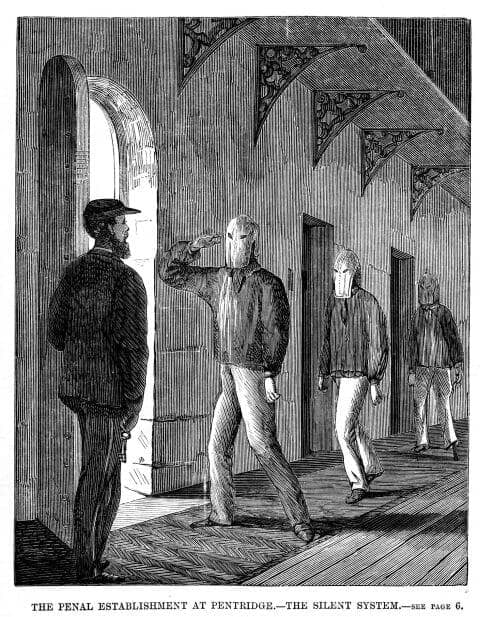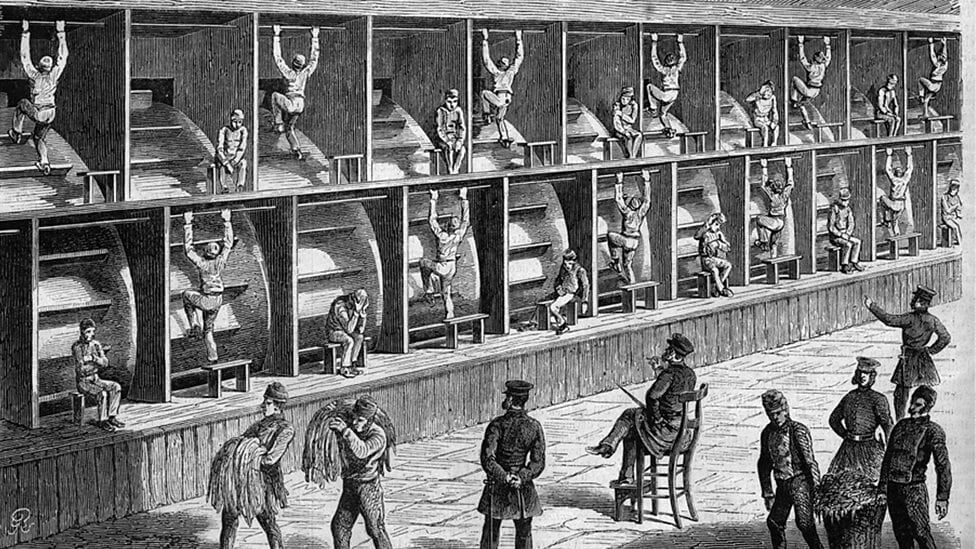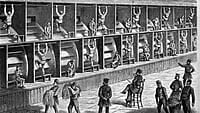Several years ago I trained to be a volunteer tour guide at Lincoln Castle. One of the most popular attractions was the Victorian-era prison. It was designed as part the the 'separate system', a form of prison management in which prisoners were kept isolated from fellow inmates in an effort to rehabilitate them.
In communal areas prisoners wore masks and were forbidden from talking. At exercise they held on to a 4.5 metre-length of rope to keep them apart from fellow inmates.
The only place they were allowed to remove their hoods was in the chapel, where they sat in individual pews, separated from others by high walls and doors, with a view only of the chaplain.
The system was ultimately abandoned when it was found, unsurprisingly, that, far from rehabilitating prisoners, it drove many to suicide.)










It's hardly surprising. Isolation is now considered to be akin to torture. According to Nelson Mandela, solitary confinement was “the most forbidding aspect of prison life. There was no end and no beginning; there’s only one’s own mind, which can begin to play tricks”
Why then, does the government insist that isolation rooms are "an important component of effective behaviour management in schools"
Given that "vague and ill-defined" criteria for their use and the lack of data on their impact, how can such a bold claim be justified?
Isolation rooms, also known euphemistically as "remove rooms", are spaces used by schools used to temporarily excluded students who ‘require help in improving their behaviour, attendance or attitude to learning’ (DCSF 2009).
As school funding has plummeted, use of isolation rooms has skyrocketed. Officially their use should be ‘rational; reasonable; fair; and proportionate’ and part of a wider strategy. However, according to the authors of a 2023 study, Dr Julie Sealey, Professor Tom Cockburn and Elizabeth J. Abrams, far from being alternative classrooms offering extra support to those with special needs, isolation rooms are" highly controlled and surveilled", a place where pupils’ differences are pathologised as ‘psychological flaws’ and the goal is to ensure that pupils exhibit obedience and conformity"
t's not difficult to imagine the catastrophic impact this might have on neurodivergent kids, who are more likely to experience social isolation and low self-esteem than their peers.
As well as presenting the findings of experts on this outdated practice, the authors of the report took a groundbreaking approach: they listened to children. Reading their heartbreaking accounts I can't help but think how much they have in common with the prisoners once housed within the walls of a long defunct prison that is considered so outdated that it has become a tourist attraction.
I
